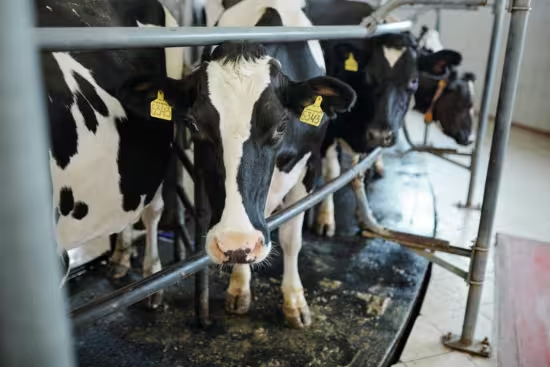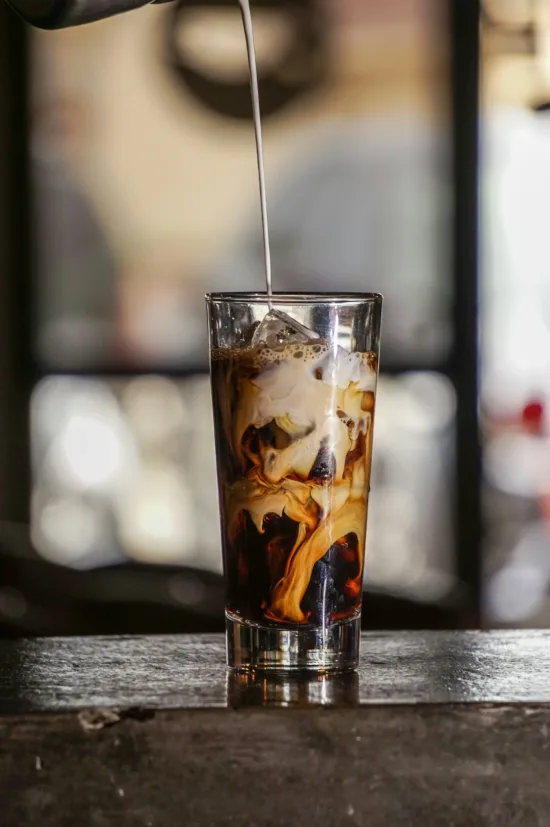
Are all alt milks created equal? Should customers be up-charged for going nondairy? We answer these pressing questions with the help of Barista Magazine Online readers.
BY EMILY JOY MENESES
BARISTA MAGAZINE ONLINE
Featured photo by Sarah Elizabeth
There are so many aspects of the alternative milk discussion that are regularly up for debate. What’s the best one in terms of health, taste, and texture? Should customers be up-charged for getting alternative milk? And what about plant milks being introduced to the World Barista Championship? Today, we’re taking a look at all things alternative milk and asking Barista Magazine Online readers to share their thoughts.

Effects On Taste
While milk alternatives have grown in popularity in recent years, some express concern that they may affect the taste of coffee-based drinks. They also bring up the fact that not all milks are created equal, and some may pair better with certain beverages than others.
“I think some drinks suit alt milks more (like matcha and chai lattes), but unflavored espresso lattes are definitely better with whole milk, in my opinion,” shares Barista Magazine Online reader Martina Wentworth.
Other readers point to how some alternatives, like oat milk, taste and steam better than, say, almond milk. “I’ve learned that almond milk changes the flavor of the coffee negatively. I was so excited to add my homemade almond milk to my coffee and to my surprise it changed the chemistry of my coffee to a very bitter taste,” shares reader Vee M.
To mitigate these issues, some suggest making oat milk, which has a more neutral flavor, the default option, while reserving nut milks for “signature drinks” that incorporate specific flavors that are accentuated by the flavor of nut milk.

Environmental Concerns
While plant-based milks have grown in popularity largely because of consumers’ concerns with dairy milk’s negative environmental impact, it’s still important to note that some nondairy milks are more sustainable than others. We’ve explored this topic in the past and found that soy, oat, and hemp milk tend to be more “eco-friendly“ than almond milk, requiring less water and land to produce.
What About Up-Charging?
This aspect of the discussion is perhaps the most controversial: Should customers be up-charged when they order plant-based milk?
“(There should be) no up-charge—where I live milk and alt milks are essentially the same cost, so why up-charge? Just because it’s become acceptable by folks? We gotta stop,” shares Barista Magazine Online reader Madeleine M.

Dennis Cote, who entered the specialty-coffee world in 2001 and based their graduate school thesis statement on the intersection of specialty-coffee shops and gentrification, shares how up-charging for nondairy milk can be alienating to certain groups of people.
“Many times (coffee shops up-charge for dairy alternatives) because café owners elude the history of dairy production,” Dennis says. “For many people, not drinking dairy is not a choice but a biological necessity based upon race. Charging more for dairy alternatives is at the intersection of racism and ableism. … Dairy alternatives cost more than milk but (that’s because) the dairy industry is heavily subsidized in the United States.”
The Rose Room Café brings up a possible solution for café owners looking to accommodate both their own budget concerns and customers’ needs. The coffee shop up-charges for almond milk in lattes, but offers their own house-made oat milk for free.
“Honestly it’s not about ‘fair’ but about the necessity to charge more to make up for costs,” they share. “As an alternative creamer? No way (we’ll up-charge)—but as a 12 oz latte, there can be a big difference. Honestly, I wish we didn’t have to charge more for almond milk, but we do. We have our housemade oat milk as a ‘no charge’ dairy-free option.”

Alternative Milk at the WBC: Nondairy Is Here to Stay
In 2023, the World Barista Championship updated its rules to allow plant-based milks. Though most competitors have continued to use dairy milk since then, the new regulations show that the demand for plant-based milk is continuing to grow, and milk alternatives are here to stay.
Compared to a few years ago, plant-based milk is no longer a “niche“ offering, and virtually all cafés have alternative milk on their menu. That being said, the specialty-coffee world’s knowledge of how to best incorporate these alternatives into their offerings is constantly evolving, and we invite readers to continue sharing their thoughts and experiences as the conversation unfolds.
ABOUT THE AUTHOR
Emily Joy Meneses (she/they) is a writer and musician based in Los Angeles. Her hobbies include foraging, cortados, vintage synths, and connecting with her Filipino roots through music, art, food, and beverage.
Subscribe and More!
As always, you can read Barista Magazine in paper or digital format. Read the October + November 2024 issue for free with our digital edition.
And for more than three years’ worth of issues, visit our digital edition archives here.





